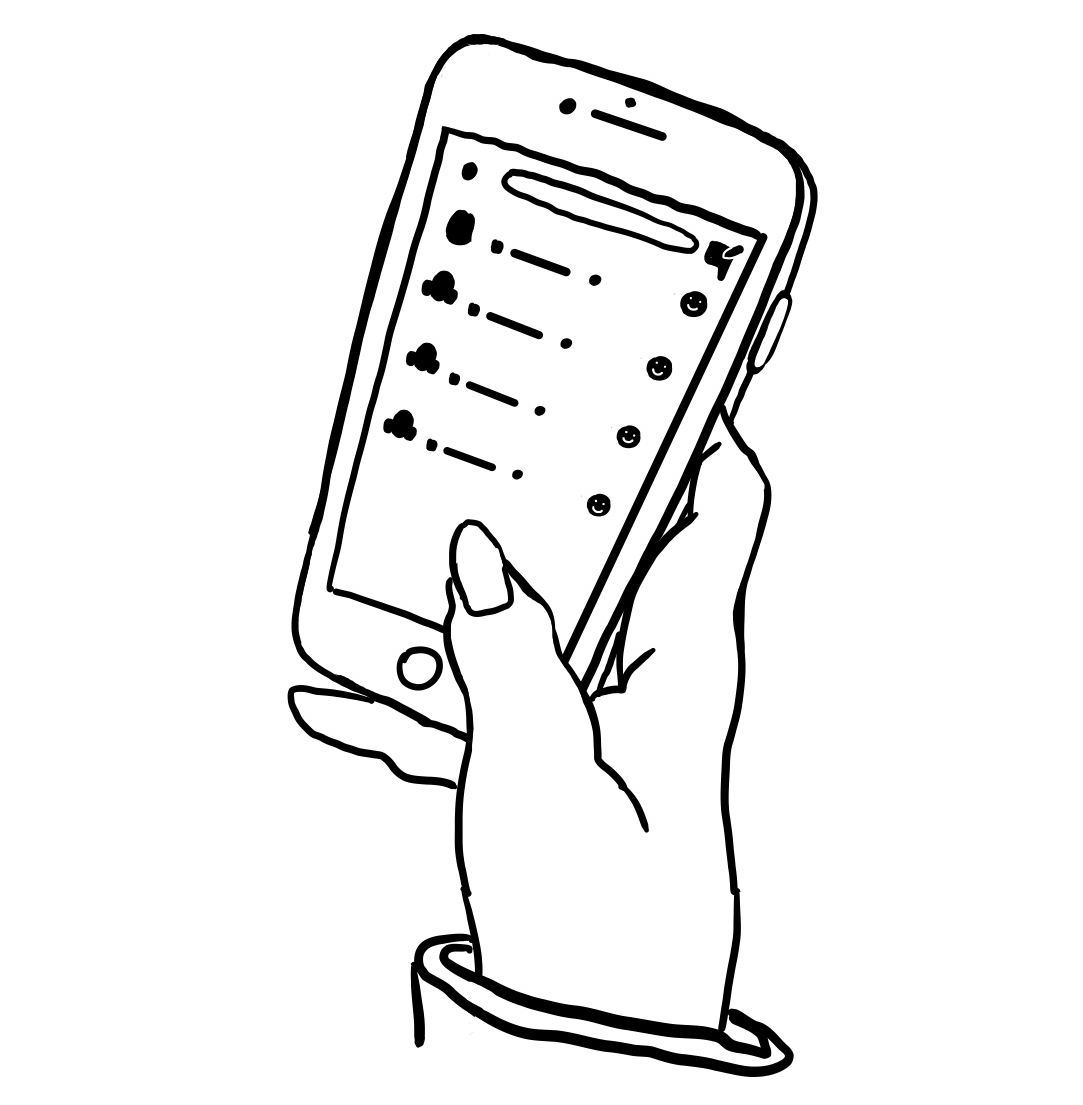
Dora Guo
I am the worst at keeping in touch. And I have no excuse.
I have moved around, so I have friends here, in Madrid and in Mexico City, and my family is scattered across the U.S., Thailand and Mexico. But still, I can’t seem to motivate myself to be in regular contact with any of them.
People notice, and they don’t like it. I’m sure I seem lazy, heartless or detached, but I don’t think I am. My role in most groups is of listener, my intended quick meals with friends end hours later and I never wear headphones in order to make myself as approachable as possible.
I guess absence makes my heart colder.
And, honestly, I’m glad; our discomfort with absence pushes us towards social media, but social media makes us more lonely.
Take Snapchat, an example of a widely-used social network for almost every kind of communication. Open the app and take a picture, maybe a selfie with a friend at a party. Before you share it, you can add information to the picture: the temperature, the time, your location, a caption, a filter, a sticker, a drawing, a gif. You decide to add the time to emphasize that you’re out really late. It’s also good to put in a caption, something like, “Love my girl” so people know you two are really close. You then realize that what you just created could work as an update for all of your Snapchat friends. So, you post it to your Snapchat story. Now, everyone will know you’re having a good time, and anyone can swipe up and start a conversation with you. It’s an invitation.
You’re hoping for some swipe-ups, and you get them! “You look so cute and your friend is literally so pretty,” is one, to which you might respond, “Aw thanks love you miss you.” You also get, “Ah looks so fun do you love college?!,” to which you say, “Oh my god yes do you?!” These might not seem like important interactions in isolation, but when you and your friends post on your stories frequently, constantly swipe up on each other’s, and send things back and forth directly, it adds up; you can get a good idea of what’s going on in your lives, keeping each other close even while oceans away.
And Snapchat is a tool not just for faraway friends, but for those you see every day, too. It’s just that now you never have to leave them. With this at our disposal, how could we not use it? In fact, it’s almost rude not to. Opting out says, “I could do this simple thing for us to talk more, but I won’t.” So, if you don’t have an account already, you better make one.
And when you do, your interactions on Snapchat are subject to the same social norms we apply to in-person interactions. We all know people check their phones often, so not opening a Snapchat is like knowing someone is talking to you but not listening; and opening the Snapchat but not responding is like hearing someone talk to you and not saying anything back. Now, being a “good friend” requires being in touch all the time: knowing every small event in their life, making sure they know everything happening in yours and digesting it all together as it happens. If every friendship requires that degree of attention, then when are you not on Snapchat?
Not very often. “I’m using it to be social” we say. But Snapchat isn’t social; it’s a game. The app tells you how many people see your story, not to help you connect with them, but to make you want more people to see it. You get a Snapscore so you will want to increase it. And Snapchat tells us the last time our friends were on the app so we can make each other feel bad about not responding to the blurry picture we sent of our face. Snapchat has built an army of people who police each other’s phone use in the name of being good friends, holding each other accountable for not using it enough.
So Snapchat isn’t addictive because we love our friends and can’t stop talking to them; it’s addictive because of competition and insecurity. It’s about you and your image, not you and your friends.
And not only is our activity within the app toxic, but so is what it does to our activity outside of the app. I think most of us have been around someone while they prioritize people on their phone, and I bet most of us have done the same.
Being social adds so much to human life. It looks like dancing, hugging, laughing or kissing, and it feels like excitement, comfort or love. It should be about how well you know that one person, not about how many people you know.
By keeping in touch with everyone, we are pushing people away.
So call faraway friends. But also know that it is okay to miss people, that longing isn’t necessarily a void that needs filling. The tools we think do that for us make it more difficult to build relationships worth using them for.
I’m a social person, and since Snapchat is so widely used, I still have mine. I won’t say for sure that the answer is deleting it, although it might be. But I don’t need an excuse to want to keep people at arm’s length.
Daily, I’m asked to be more reachable, and my response is always, “Sorry, I’m just the worst at keeping in touch.” But not by accident.
MICHAELA MARKELS is a first year in Grace Hopper College. Contact her at michaela.markels@yale.edu .







